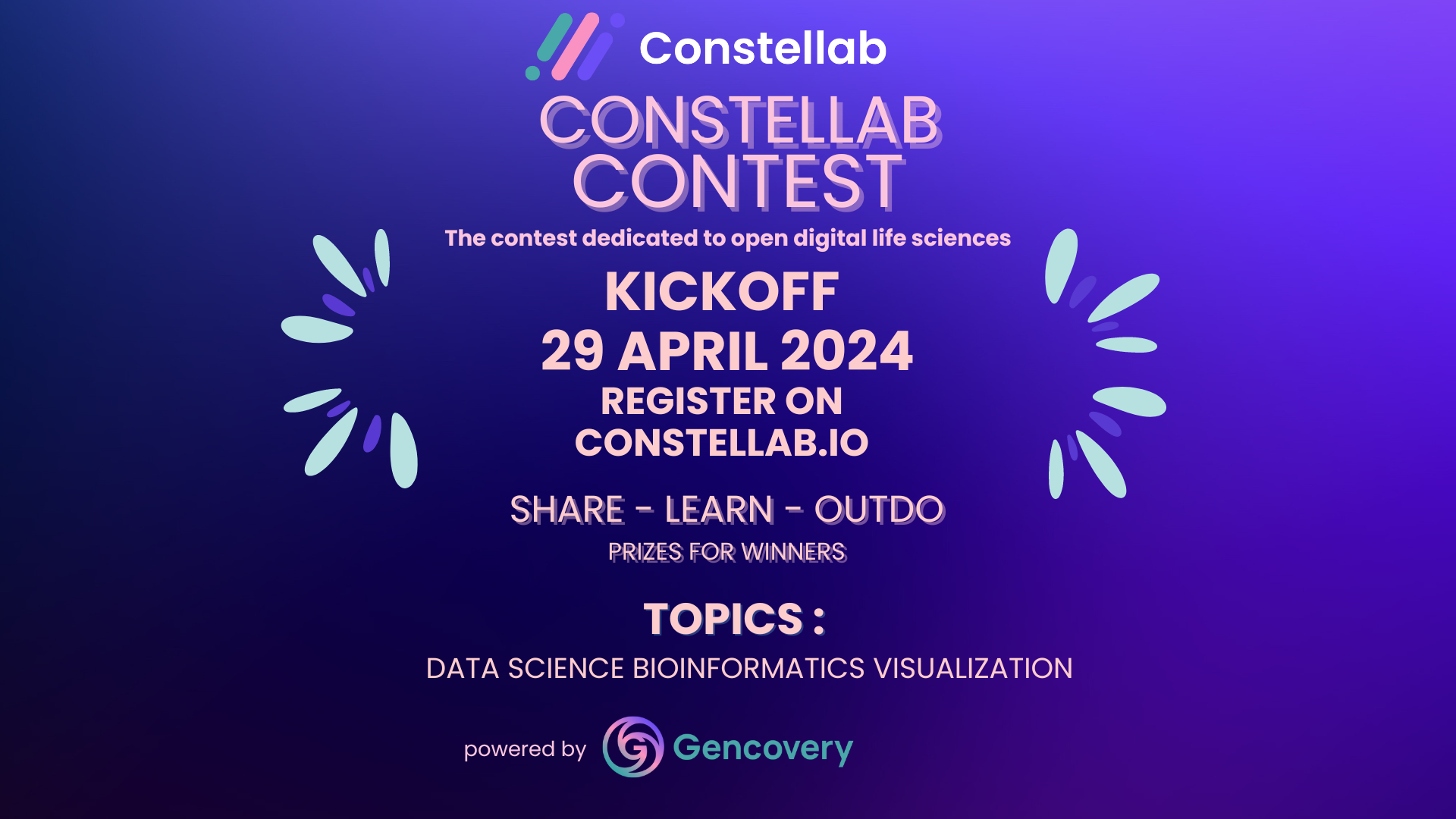Constellab Contest Guidelines

The Constellab Contest isn't just a competition; it's a movement towards open source innovation and collective knowledge in the life sciences. Are you passionate about pushing the boundaries of knowledge and collaboration? Here are the main principles and values of the contest:
Principles and values
- Open Source Excellence: Everything from data sets to development pipelines will be open for the community. Your project will shine on our community website, fostering a culture of transparency and innovation.
- Team collaborative: Bring together your brightest peers and co-create solutions that push scientific boundaries. Remember, teamwork makes the dream work.
- Creativity unleashed: Dive deep into the capabilities of the Constellab platform and explore new scientific horizons. Your creativity could lead to the next big breakthrough in life sciences.
- Smart resources management: You’ll have access to the Constellab lab equipped with 16 GB RAM and 4 CPUs. Optimize your project to leverage these resources effectively.
Idea examples
Do you need a public dataset or some pipeline ideas? Don't hesitate to have a look at these websites:
- TCGA, launched in 2006 by NCI and NHGRI, analyzed 20,000+ cancer samples across 33 types, generating 2.5+ petabytes of data. This comprehensive dataset has advanced cancer research and remains openly accessible for further study: https://portal.gdc.cancer.gov/
- The Tara Ocean Foundation, France's first recognized public utility foundation dedicated to the ocean, has a dual mission: to explore and better understand the ocean, and to share scientific knowledge to foster collective citizen awareness: https://fondationtaraocean.org/publications-scientifiques/open-science-resources-for-the-discovery-and-analysis-of-tara-oceans-data/
- A publicly available, simple-to-use, curated dataset collection of paired fecal microbiome-metabolome data from multiple cohorts: https://www.nature.com/articles/s41522-022-00345-5
They contain a lot or ready-to-use data, providing ample opportunities to explore and build upon various topics.
For example:
- What are the statistical similarities between people who develop the same cancer?
- How can machine learning be used to predict the diagnosis?
- How are viruses distributed according to their geographical location?
- Which factors can influence the development of disease in the microbial human gut?
Evaluation criteria
Here is the list of evaluation criteria for the projects. The total score is out of 100 points, with additional bonus points available 🤩.
Clear scientific interest
Knowledge of Constellab
Pipeline
Project management in the collaborative space
Visualisation
Documentation
Green computing
Have a great contest ! 🎉

Comments (1)
Write a comment